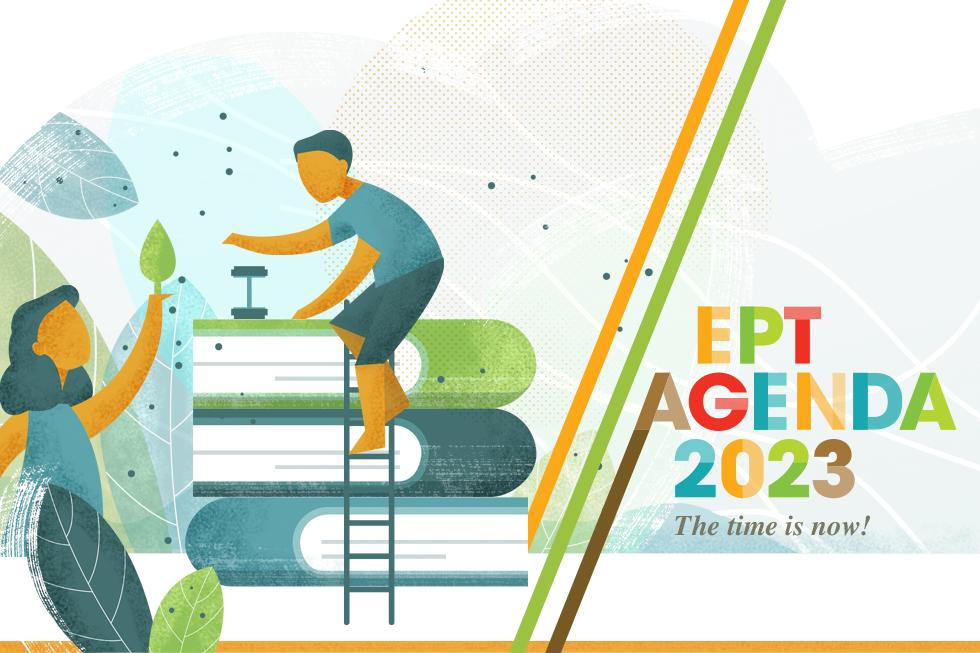It’s 2020. The threat of climate change is ever increasing and we now have a greater understanding than ever of how the environment impacts our health. There is a global outcry for action to be taken to protect the future of the Earth. Leading the charge? Students. Greta Thunberg set a-flame a passion for the planet that has continued to burn brighter and brighter. The future of the earth is in the hands of these students shouting for change, just as the future of physiotherapy is in our hands.
Regarding the global crisis that we live in, a useful alternative to current (Western) ethical frameworks for evaluating global bioethical issues has come to our attention. (Ewuoso & Hall, 2019). It is Ubuntu, a philosophy promoting oneness from the Zulu community in southern Africa. Translating to “I am because we are” Ubuntu is an understanding of the unity of all life. Ubuntu stands for compassion, solidarity, harmony and humanity, focussing on taking actions that relate to the shared responsibilities of our community. It is a guiding principle of how one interacts with other human beings or nature that binds us together and makes us human.
We, as students of physiotherapy, are not individuals standing on our own, but rather a part of a diverse population with a common interest. Health. Our community of physiotherapy students from across the globe, through working together, are powerful and can move mountains. When students are educated about environmental and sustainable perspectives to health we generate a way to facilitate our profession into a more sustainable future. The student population represents the future of physiotherapy, and it is through students that the greatest changes can be made.
As students of physiotherapy it is our duty to help our profession to adapt to an ever-changing world. No longer can the environment be kept out of the profession, whether that is because we won’t have a profession for much longer if we don’t have an environment to practice it in, or, because the impact that the environment has on health is so significant (Myers, 2017; Watts et al., 2019).
Recently the EPA launched the Environmental Physiotherapy Agenda 2023 to empower physiotherapy education institutions and students around the world to incorporate environmental and sustainability perspectives into physiotherapy education.
The aim of the EPT Agenda 2023 is:
To ensure that every student beginning entry-level physiotherapy education from 2020 onwards will have education regarding the relationship between the environment, human health and functioning, and how this pertains to physiotherapy as part of their programme.

Thies Bundtzen
EPA Student Representative
Thies is a final year physiotherapy student and a movement enthusiast from northern Germany. His current interests are in self-empowerment and the neurocentric approach in the management of chronic diseases. He gets excited by nature and has a passion for beach handball.

Issie Long
EPA Student Representative
Issie is a final year physiotherapy student at Cardiff University, UK, who has an interest in Critical Care and Major Trauma rehabilitation as well as an enthusiasm for equine sports, education and the environment.

What does the EPT Agenda 2023 mean for us students?
Firstly, the EPT Agenda 2023 gives you the opportunity to shape your own learning. It calls physiotherapy education institutions to make steps towards a more environmental future through human health and physiotherapy. If your university were to participate in the EPT Agenda 2023 it would open doors to a multitude of ways to learn about and experience the relationship between the environment and human health.
Using the EPT Agenda 2023 as a basis for open discussion among students and staff allows for our understanding of what environmental practice is to expand. An example of this would involve discussions about health promotion alongside the promotion of planetary health (e.g. encouraging patients to walk or cycle rather than drive) combining benefits for the environment with the benefits of physical activity. Exploring the health benefits that the environment can have for patients has the potential to alter clinical practice for the better and strengthen the reasoning process for prescribing physical activity for patients. Explaining the simultaneous benefits for the environment and the patient’s health might add to the meaningfulness of physical activity, possibly impacting the adherence of a patient.
The EPT Agenda 2023 also gives us students the opportunity to shape the future of physiotherapy from the ground up. While we are still in the process of learning our future trade, environmental physiotherapy education may provide you with the tools to make your own practice more sustainable after qualification. The time is now to start building a future of environmentally aware and responsible physiotherapy that allows for the incorporation of the environment into physiotherapy from the very start of any individual clinician’s journey. Our practice is still far from formed, and arguably at its most plastic, so now is the perfect time to start moulding our future career and interweaving the environment into it.

Opening possibilities
The EPT Agenda 2023 could go a long way, but nothing is final yet. It is up to us to decide how we want physiotherapy to relate to the environment in the future. Much remains to be developed, but the EPT Agenda 2023 empowers physiotherapy students to discuss innovative ideas, imagine a different future, and find creative solutions for an environmentally responsible and sustainable physiotherapy practice in clinic design, disease management and patient care.
Environmental Physiotherapy is a new field of research, practice, and education. As physiotherapy students, guided by our universities, we have the perfect opportunity to explore the true implications of the environment on physiotherapy and vice versa.
We are excited to encourage students around the globe to get involved and help us innovate and develop the new and urgent field of environmental physiotherapy (Maric & Nicholls, 2019).
Ubuntu tells us ‘I am because we are’. Together with all physiotherapy students around the globe, let’s lay the foundations upon which we can build a healthier future. You can start with adding your voice to ours by taking the following action steps.
Actions you can take
- Simply signing the EPT Agenda 2023 is one action that you could take right now.
- Share the petition with friends and colleagues whenever you can, via Social Media and, after COVID-19, in person again.
- Talk to your lecturers and universities and urge them to participate in the EPT Agenda 2023.
Any questions or ideas? Feel free to reach out to us.

References
Ewuoso, C., & Hall, S. (2019). Core aspects of ubuntu: A systematic review. South African Journal Of Bioethics And Law, 12(2), 93-103. doi:10.7196/SAJBL.2019.v12i2.00679
Myers, S. (2017). Planetary health: protecting human health on a rapidly changing planet. The Lancet, 390, 2860- 2868. doi: 10.1016/S0140-6736(17)32846-5
Watts, N., Amann, M., Arnell, N., Ayeb-Karlsson, S., Belesova, K., et al. (2019). The 2019 report of The Lancet Countdown on health and climate change: ensuring that the health of a child born today is not defined by a changing climate. The Lancet, 394(10211), pp.1836- 1878. doi:10.1016/S0140-6736(19)32596-6
Maric, F. & Nicholls, D. (2019) A call for a new environmental physiotherapy – An Editorial, Physiotherapy Theory and Practice, 35:10, 905-907. doi:10.1080/09593985.2019.1632006


Trackbacks/Pingbacks